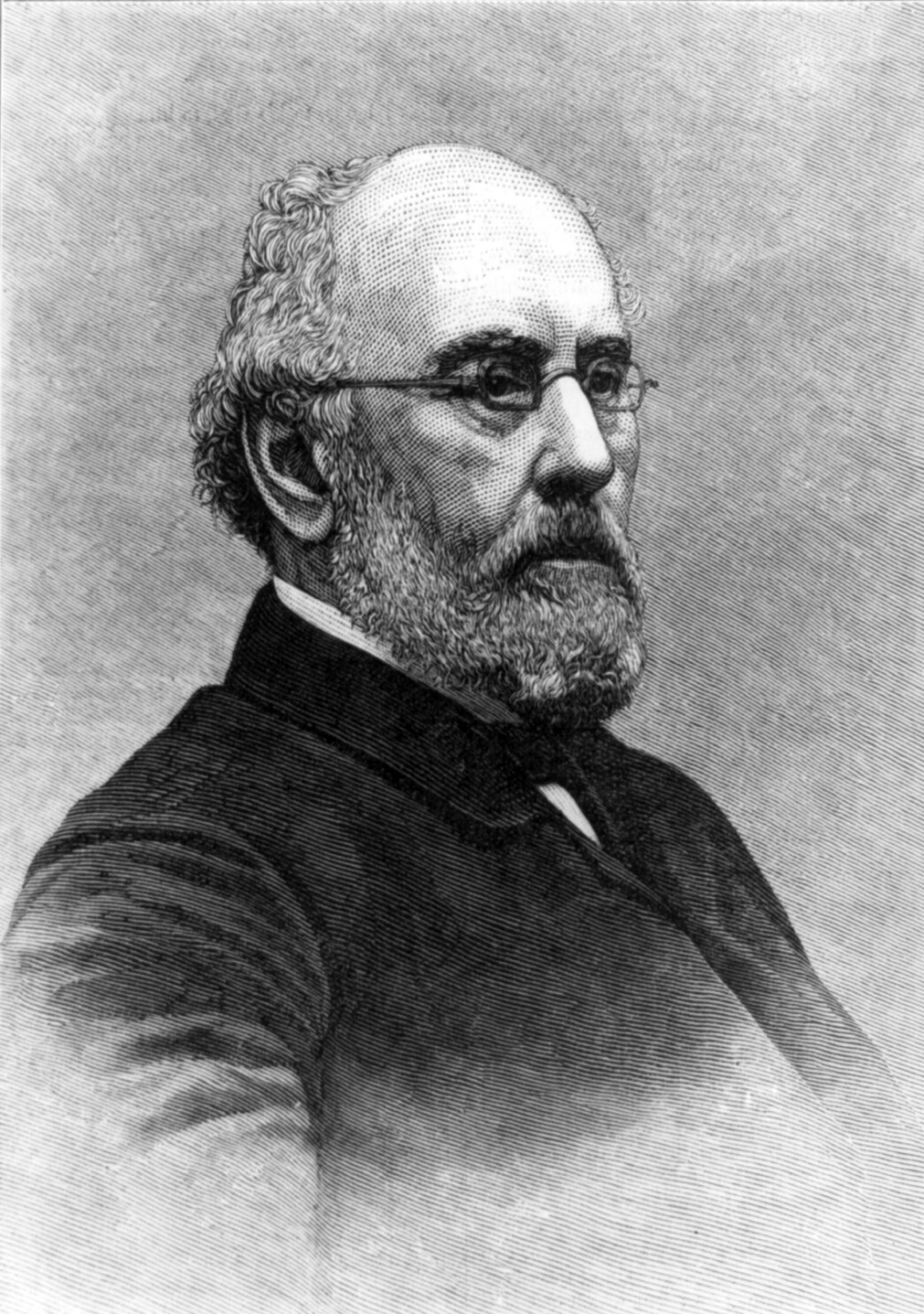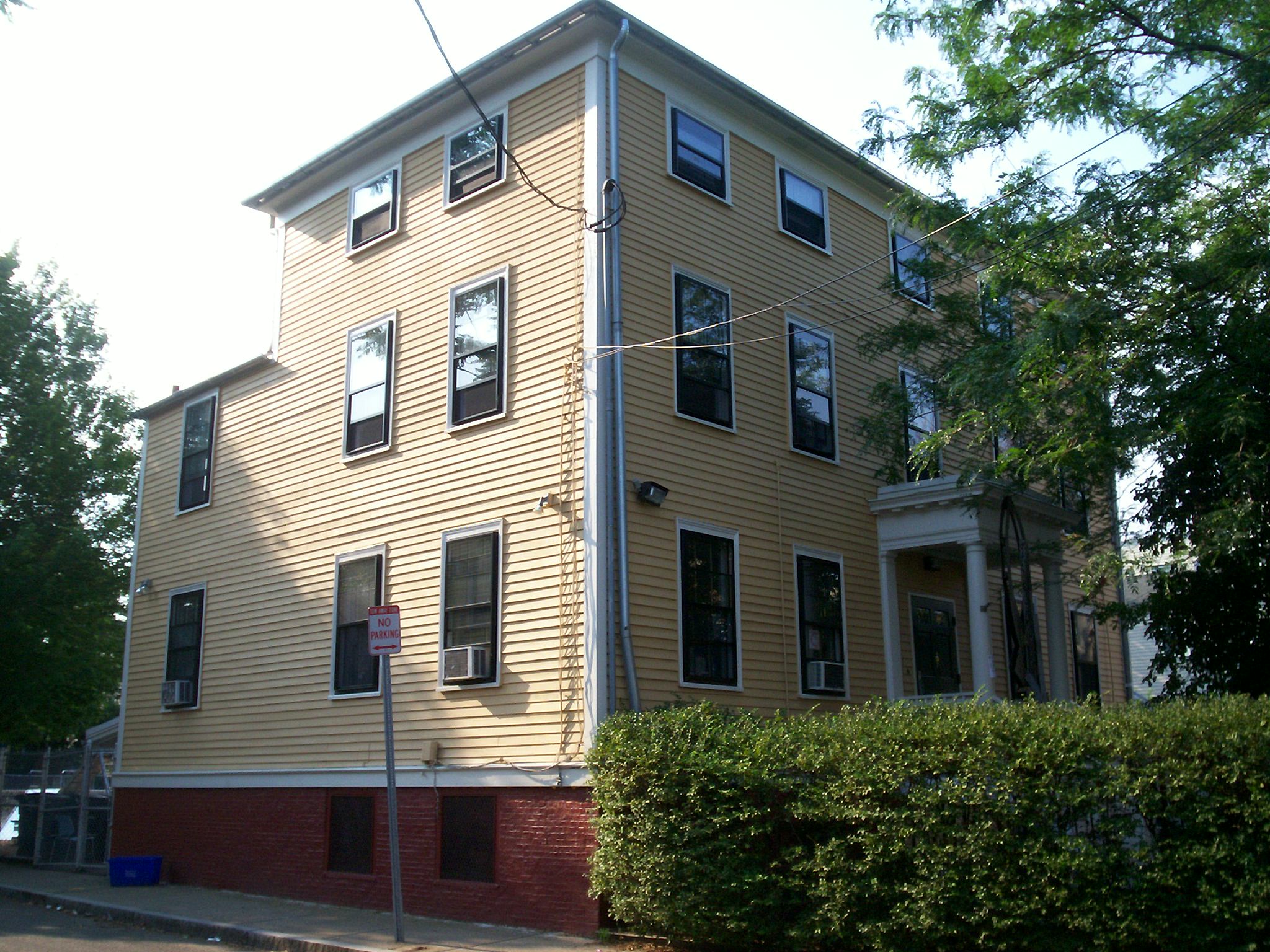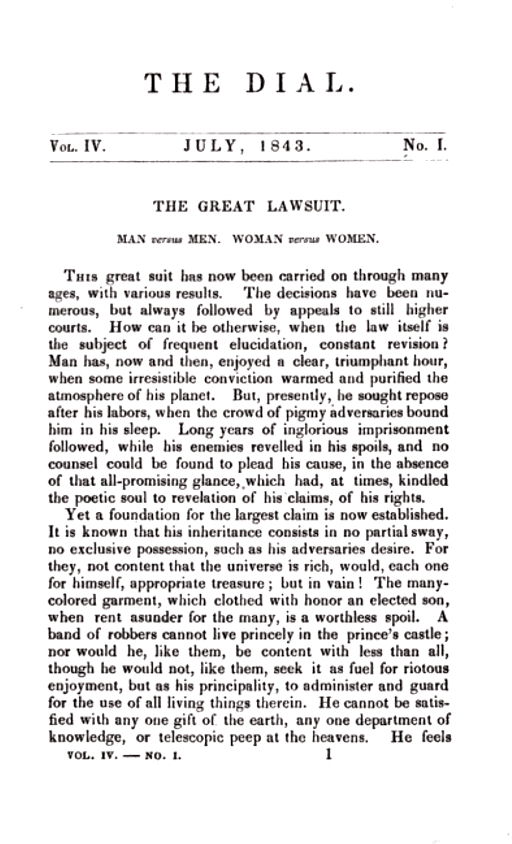|
Frederick Henry Hedge
Frederic Henry Hedge (December 12, 1805 – August 21, 1890) was a New England Unitarian minister and Transcendentalist. He was a founder of the Transcendental Club, originally called Hedge's Club, and active in the development of Transcendentalism. He was one of the foremost scholars of German literature in the United States. Biography Born in Cambridge, Massachusetts, Hedge was the son of Harvard University professor of logic and metaphysics Levi Hedge. At the age of 12, he traveled to Germany and studied music for five years under the care of George Bancroft. He then entered Harvard as a junior and graduated in 1825. His knowledge of German was to serve him well both in hymnody — he translated Luther's "Ein feste Burg ist unser Gott" ("A Mighty Fortress Is Our God") into the most popular English version — and in philosophy, where it allowed him a greater familiarity with Kant than most of the Americans of his day. After graduating as valedictorian, he enrolled in Harv ... [...More Info...] [...Related Items...] OR: [Wikipedia] [Google] [Baidu] |
Cambridge, Massachusetts
Cambridge ( ) is a city in Middlesex County, Massachusetts, United States. As part of the Boston metropolitan area, the cities population of the 2020 U.S. census was 118,403, making it the fourth most populous city in the state, behind Boston, Worcester, and Springfield. It is one of two de jure county seats of Middlesex County, although the county's executive government was abolished in 1997. Situated directly north of Boston, across the Charles River, it was named in honor of the University of Cambridge in England, once also an important center of the Puritan theology embraced by the town's founders. Harvard University, the Massachusetts Institute of Technology (MIT), Lesley University, and Hult International Business School are in Cambridge, as was Radcliffe College before it merged with Harvard. Kendall Square in Cambridge has been called "the most innovative square mile on the planet" owing to the high concentration of successful startups that have emerged in the vicinity ... [...More Info...] [...Related Items...] OR: [Wikipedia] [Google] [Baidu] |
George Ripley (transcendentalist)
George Ripley (October 3, 1802 – July 4, 1880) was an American social reformer, Unitarianism, Unitarian minister, and journalist associated with Transcendentalism. He was the founder of the short-lived Utopian community Brook Farm in West Roxbury, Massachusetts. Born in Greenfield, Massachusetts, George Ripley was pushed to attend Harvard College by his father and completed his studies in 1823. He went on graduate from the Harvard Divinity School and the next year married Sophia Ripley, Sophia Dana. Shortly after, he became ordained as the minister of the Purchase Street Church in Boston, Massachusetts, where he began to question traditional Unitarian beliefs. He became one of the founding members of the Transcendental Club and hosted its first official meeting in his home. Shortly after, he resigned from the church to put Transcendentalism, Transcendental beliefs in practice by founding an experimental commune (intentional community), commune called Brook Farm. The community l ... [...More Info...] [...Related Items...] OR: [Wikipedia] [Google] [Baidu] |
Middle Ages
In the history of Europe, the Middle Ages or medieval period lasted approximately from the late 5th to the late 15th centuries, similar to the post-classical period of global history. It began with the fall of the Western Roman Empire and transitioned into the Renaissance and the Age of Discovery. The Middle Ages is the middle period of the three traditional divisions of Western history: classical antiquity, the medieval period, and the modern period. The medieval period is itself subdivided into the Early, High, and Late Middle Ages. Population decline, counterurbanisation, the collapse of centralized authority, invasions, and mass migrations of tribes, which had begun in late antiquity, continued into the Early Middle Ages. The large-scale movements of the Migration Period, including various Germanic peoples, formed new kingdoms in what remained of the Western Roman Empire. In the 7th century, North Africa and the Middle East—most recently part of the Eastern Ro ... [...More Info...] [...Related Items...] OR: [Wikipedia] [Google] [Baidu] |
Joshua Young
Joshua Young (September 23, 1823 – February 7, 1904) was an abolitionist Congregational Unitarian minister who crossed paths with many famous people of the mid-19th century. He received national publicity, and lost his pulpit (job) for presiding in 1859 over the funeral of John Brown, both the most famous person in the country and the first person executed for treason in the history of the United States. Contrary to his friends' expectations, his resignation under pressure in Burlington did not ruin his career; the church in Burlington later apologized and invited him back to speak, "an honored guest", There is a memorial tablet in the church. Life and career Young was born in 1823 in Randolph, near Pittston, Maine, the youngest of eleven children of Aaron Young (1783–1875) and Mary Colburn Young Bangor, where he attended local schools. At the age of 16 he entered Bowdoin College, graduating Phi Beta Kappa in 1845. He continued his studies at Harvard Divinity School, graduat ... [...More Info...] [...Related Items...] OR: [Wikipedia] [Google] [Baidu] |
Margaret Fuller
Sarah Margaret Fuller (May 23, 1810 – July 19, 1850), sometimes referred to as Margaret Fuller Ossoli, was an American journalist, editor, critic, translator, and women's rights advocate associated with the American transcendentalism movement. She was the first American female war correspondent and full-time book reviewer in journalism. Her ''book Woman in the Nineteenth Century'' is considered the first major feminist work in the United States. Born Sarah Margaret Fuller in Cambridge, Massachusetts, she was given a substantial early education by her father, Timothy Fuller, a lawyer who died in 1835 due to cholera. She later had more formal schooling and became a teacher before, in 1839, she began overseeing her Conversations series: classes for women meant to compensate for their lack of access to higher education. She became the first editor of the transcendentalist journal ''The Dial'' in 1840, which was the year her writing career started to succeed, before joining the st ... [...More Info...] [...Related Items...] OR: [Wikipedia] [Google] [Baidu] |
The Dial
''The Dial'' was an American magazine published intermittently from 1840 to 1929. In its first form, from 1840 to 1844, it served as the chief publication of the Transcendentalists. From the 1880s to 1919 it was revived as a political review and literary criticism magazine. From 1920 to 1929 it was an influential outlet for modernist literature in English. Transcendentalist journal Members of the Hedge Club began talks for creating a vehicle for their essays and reviews in philosophy and religion in October 1839.Gura, Philip F. ''American Transcendentalism: A History''. New York: Hill and Wang, 2007: 128. Other influential journals, including the ''North American Review'' and the ''Christian Examiner'' refused to accept their work for publication. Orestes Brownson proposed utilizing his recently established periodical ''Boston Quarterly Review'' but members of the club decided a new publication was a better solution.Von Mehren, Joan. ''Minerva and the Muse: A Life of Margaret ... [...More Info...] [...Related Items...] OR: [Wikipedia] [Google] [Baidu] |
Jones Very
Jones Very (August 28, 1813 – May 8, 1880) was an American poet, essayist, clergyman, and mystic associated with the American Transcendentalism movement. He was known as a scholar of William Shakespeare, and many of his poems were Shakespearean sonnets. He was well-known and respected among the Transcendentalists. Born in Salem, Massachusetts to two unwed first cousins, Jones Very became associated with Harvard University, first as an undergraduate, then as a student in the Harvard Divinity School and as a tutor of Greek language, Greek. He studied epic poetry and was invited to lecture on the topic in his home town, which drew the attention of Ralph Waldo Emerson. Soon after, Very asserted that he was the Second Coming of Christ, which resulted in his dismissal from Harvard and his eventual institutionalization in an insane asylum. When he was released, Emerson helped him issue a collection titled ''Essays and Poems'' in 1839. Very lived the majority of his life as a reclus ... [...More Info...] [...Related Items...] OR: [Wikipedia] [Google] [Baidu] |
Sylvester Judd
Sylvester Judd (July 23, 1813 – January 26, 1853) was a Unitarianism, Unitarian minister and an American novelist. Biography Sylvester Judd III was born on July 23, 1813, in Westhampton, Massachusetts to Sylvester Judd II and Apphia Hall, a daughter of Aaron Hall of Norwich, a veteran of the American Revolutionary War, Revolutionary War, a one-year attendee at Harvard, and later modest justice of the peace. His great-grandfather was Rev. Jonathan Judd (1719-1803), a clergyman of Southampton, while his grandfather ran the family store. His father, after working in the store in his boyhood, went to Boston for several years, where, according to Judd's sister's biography, he became a voracious reader, returning to the family business, but then becoming editor of the ''Hampshire Gazette''. Sylvester Judd III studied at Hopkins Academy in Hadley, Massachusetts, where he was president of the Literary Society and delivered the valedictorian address. He graduated from Yale College in 18 ... [...More Info...] [...Related Items...] OR: [Wikipedia] [Google] [Baidu] |
Christopher Pearse Cranch
Christopher Pearse Cranch (March 8, 1813 – January 20, 1892) was an American writer and artist. Biography Cranch was born in the District of Columbia. His conservative father, William Cranch, was Chief Judge of the United States Circuit Court of the District of Columbia, while his brother John Cranch (American painter), John was a painter. He graduated from Columbian College (now George Washington University) in 1835 before attending Harvard Divinity School and becoming a licensed preacher.Carpenter, Hazen C. "Emerson and Christopher Pearse Cranch" in ''The New England Quarterly''. Vol. 37, No. 1 (March 1964): 19. He traveled as a Unitarianism, Unitarian minister, preaching in Providence, Andover, Richmond, Bangor, Portland, Boston, Washington, and St. Louis. Later, he pursued various occupations: a magazine editor, caricaturist, children's fantasy writer (the ''Huggermugger'' books), poet (''The Bird and the Bell with Other Poems'' in 1875), translator, and landscape painter. ... [...More Info...] [...Related Items...] OR: [Wikipedia] [Google] [Baidu] |
William Henry Channing
William Henry Channing (May 25, 1810 – December 23, 1884) was an American Unitarian clergyman, writer and philosopher. Biography William Henry Channing was born in Boston, Massachusetts. Channing's father, Francis Dana Channing, died when he was an infant, and responsibility for the young man's education was assumed by his uncle, William Ellery Channing, the pre-eminent Unitarian theologian of the early nineteenth century. The younger William graduated from Harvard College in 1829 and from Harvard Divinity School in 1833. He was ordained and installed over the Unitarian church in Cincinnati in 1835. He became warmly interested in the schemes of Charles Fourier and others for social reorganization. He moved to Boston about 1847, afterward to Rochester, New York and to New York City, where, both as preacher and editor, he became a leader in a movement of Christian socialism. As an early supporter of the socialistic movement in the United States, he was editor of the ''Present'', ... [...More Info...] [...Related Items...] OR: [Wikipedia] [Google] [Baidu] |
Henry David Thoreau
Henry David Thoreau (July 12, 1817May 6, 1862) was an American naturalist, essayist, poet, and philosopher. A leading Transcendentalism, transcendentalist, he is best known for his book ''Walden'', a reflection upon simple living in natural surroundings, and his essay "Civil Disobedience (Thoreau), Civil Disobedience" (originally published as "Resistance to Civil Government"), an argument for disobedience to an unjust state. Thoreau's books, articles, essays, journals, and poetry amount to more than 20 volumes. Among his lasting contributions are his nature writing, writings on natural history and philosophy, in which he anticipated the methods and findings of ecology and environmental history, two sources of modern-day environmentalism. His literary language, literary style interweaves close observation of nature, personal experience, pointed rhetoric, symbolic meanings, and historical lore, while displaying a poetic sensibility, philosophical Asceticism, austerity, and attent ... [...More Info...] [...Related Items...] OR: [Wikipedia] [Google] [Baidu] |
Convers Francis
Convers Francis (November 9, 1795 – April 17, 1863) was an American Unitarian minister from Watertown, Massachusetts. Life and work He was born the son of Susannah Rand Francis and Convers Francis, and named after his father. His sister, Lydia Maria, later became an important reformer. Francis studied to become a minister at Harvard Divinity School. He was minister of the Watertown, Massachusetts, Unitarian Church from 1819 to 1842. Francis taught Theodore Parker beginning in 1832 and preached at his ordination ceremony in 1840. Francis encouraged Parker when his translations and books were not selling well. He wrote of his "astonishment at your labors and learning", but criticized the recent lack of interest in reading, writing "the cry is all for action—for doing something, not moping over books as they say". Both Francis and Parker joined the Transcendental Club in the 1830s, an organization which included members such as Ralph Waldo Emerson, Henry David Thoreau and Marg ... [...More Info...] [...Related Items...] OR: [Wikipedia] [Google] [Baidu] |






_-_Cranch.jpg)
